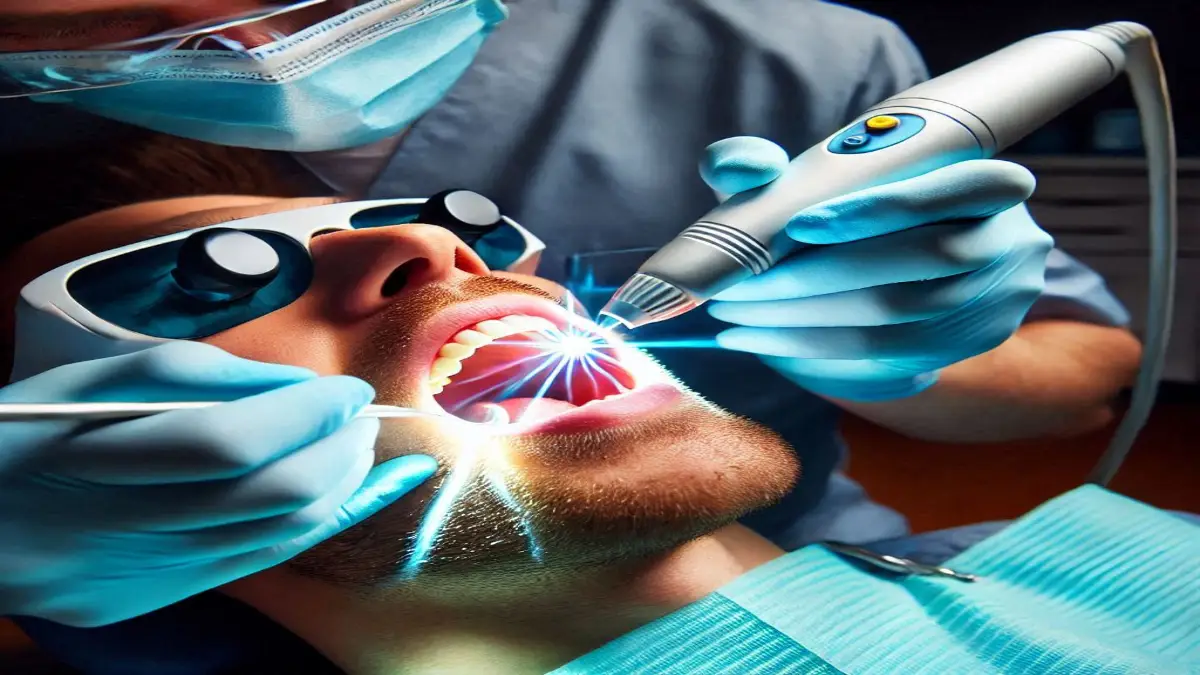
Last Updated on December 9, 2024 by Bharat Saini
If you’ve been told you need RCT treatment (Root Canal Therapy), chances are you’re feeling a bit nervous. Don’t worry—you’re not alone! Many students and adults face dental problems that require this treatment. But what exactly is RCT treatment, how much does it cost, what are its side effects, and what benefits does it offer? Let’s break it down in simple terms so you know exactly what to expect.
In this guide, we’ll cover everything you need to know, including the RCT treatment procedure, costs in India, the time it takes, and more. Let’s get started.
What Is RCT Treatment?
RCT treatment, or Root Canal Therapy, is a dental procedure used to save a tooth that’s severely decayed or infected. The process involves removing the damaged pulp (the soft tissue inside the tooth) and cleaning, disinfecting, and sealing the tooth to prevent further damage.
Think of it this way: your tooth is like a house. When the inside structure is damaged, you can either repair it or demolish it. RCT treatment repairs and saves the tooth, so you don’t lose it permanently.
Why Is RCT Treatment Needed?
You may need RCT teeth treatment if you experience the following symptoms:
- Severe tooth pain while chewing
- Sensitivity to hot and cold that lingers
- Swollen or tender gums
- Darkening or discoloration of the tooth
- A pimple-like bump on the gums
Ignoring these signs can lead to serious infections, abscesses, or even tooth loss. According to the Indian Dental Association (IDA), untreated dental infections can spread to the jaw, neck, and even other organs, posing significant health risks.
RCT Treatment Procedure: Step-by-Step Guide
Let’s walk through the RCT treatment steps so you know what happens during the procedure.
- Diagnosis and X-Ray:
Your dentist will take an X-ray to see the extent of the infection and the shape of the root canals. This helps them plan the procedure accurately. - Anesthesia:
To keep you comfortable, the dentist will numb the affected tooth and surrounding area with local anesthesia. Modern techniques ensure the procedure is virtually painless. - Access Opening:
The dentist drills a small hole in the tooth to reach the infected pulp. - Cleaning and Shaping:
The damaged pulp is removed, and the root canals are cleaned, disinfected, and shaped for filling. - Filling the Canals:
The cleaned canals are filled with a biocompatible material called gutta-percha to seal the space. - Sealing the Tooth:
The access hole is sealed with a temporary or permanent filling to protect the tooth. - Crown Placement:
In most cases, a crown (cap) is placed over the tooth to restore its strength and function.
This entire RCT full treatment usually takes 1 to 2 visits, depending on the complexity of the case.
How Long Does RCT Treatment Take?
The RCT treatment time can vary based on the condition of the tooth. On average:
- Simple cases: 1 hour per session, completed in 1 or 2 visits.
- Complex cases: May take 2 to 3 sessions, especially if there are multiple canals or severe infection.
Recovery Tip: After the procedure, give your tooth a break. Avoid chewing hard foods for at least a week to ensure proper healing.
RCT Treatment Cost in India
One of the biggest concerns for students and their families is the RCT treatment cost. The price can vary depending on factors like the tooth’s location, the severity of the infection, and the dentist’s experience.
Average Costs:
- Front Teeth: ₹2,500 to ₹4,000
- Premolars: ₹3,500 to ₹5,500
- Molars: ₹4,000 to ₹8,000
If you need a dental crown after the procedure, that can add an additional ₹2,000 to ₹10,000, depending on the type of material used (metal, porcelain, or zirconia).
Student-Friendly Cost Options
If you’re on a tight budget, consider these options:
- Government Dental Hospitals: Offer significantly lower fees and often have student clinics.
- Dental Colleges: Many dental colleges offer affordable treatments performed by supervised students.
- Insurance Plans: Check if your family’s insurance covers root canal treatments.
According to a survey by Dental Tribune India, over 60% of dental patients choose dental college clinics for affordability and quality care.
Benefits of RCT Treatment
So why go through all this trouble? Here are the key benefits of RCT treatment:
- Saves Your Natural Tooth:
Keeping your original tooth is always better than getting it extracted. - Relieves Pain:
Once the infected pulp is removed, you’ll experience relief from constant toothache. - Prevents Spread of Infection:
Treating the infection early stops it from spreading to other teeth or even your jaw. - Restores Function:
After a crown is placed, your tooth can function normally for years. - Improves Oral Health:
A healthy mouth leads to better overall health and confidence.
Side Effects of RCT Treatment
While RCT treatment side effects are rare, it’s good to be aware of potential issues:
- Temporary Discomfort:
You may feel mild pain or sensitivity for a few days after the procedure. - Swelling:
Some patients experience slight gum swelling, which usually goes away with medication. - Tooth Darkening:
The treated tooth may become slightly discolored. A crown or teeth whitening can solve this. - Reinfection:
If the filling or crown isn’t sealed properly, bacteria can re-enter the canals.
Quick Tip: Follow your dentist’s post-treatment care plan and maintain good oral hygiene to minimize side effects.
Conclusion
Don’t let tooth pain disrupt your life! RCT treatment is a safe and effective way to save your tooth and maintain your smile. According to the Indian Dental Association, root canals have a success rate of over 95% when done properly.
If you’re experiencing any symptoms of tooth infection, don’t wait—book a consultation with a trusted dentist or visit a nearby dental college clinic. Taking action today can save you a lot of trouble tomorrow.
Your smile is worth it!
FAQs About RCT Treatment
1. Is RCT Treatment Expensive?
The RCT treatment price is reasonable compared to tooth extraction and replacement options like implants or bridges.
2. Can I Avoid RCT Treatment?
Preventive care is key! Regular check-ups, brushing, and flossing can help you avoid severe decay. However, if a tooth is already infected, RCT is necessary.
3. How Long Does an RCT-Treated Tooth Last?
With proper care, an RCT-treated tooth can last a lifetime.
4. Will My Tooth Look Different After RCT?
If your tooth darkens, a crown or whitening treatment can restore its appearance.


